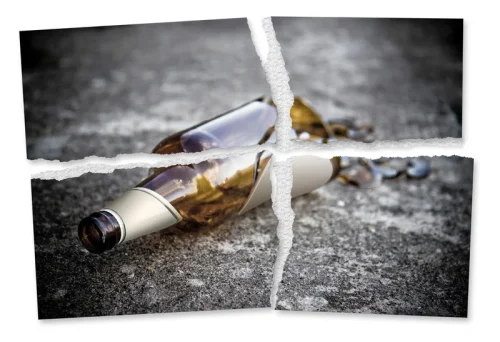Thus, hyperinsulinemia refers to higher than normal insulin levels in the blood, whereas hypoglycemia refers to lower than normal glucose levels in the blood. Many impotent diabetic men also have lower than normal levels of the sex hormone testosterone in their blood. Alcohol reduces blood levels of testosterone and may thereby further exacerbate diabetes and alcohol the existing hormonal deficit. Clinical experience indicates, however, that a testosterone deficit rarely is the sole reason for impotence in diabetic men, because treatment with testosterone rarely restores potency in those men. Thus, both neuropathy and vascular disease likely play significant roles in impotence in diabetic men.
Is it Safe to Drink Alcohol?
The alcohol amounts administered in those studies were usually between 0.5 g/kg (gram per kilogram body weight) and 1 g/kg, leading to blood alcohol levels (BALs) between approximately 0.03 and 0.1 percent2 (McDonald 1980). If you have diabetes, drinking a moderate amount of alcohol may be safe. This is because drinking alcohol with diabetes can interfere with diabetes management and your safety.
Is There a Connection Between Weight and Heart Disease?

Hypoglycemia, or low blood glucose is the biggest risk of drinking alcohol when you have diabetes. Studies show drinking moderately (about one drink per day) may improve heart health and decrease the risk of diabetes. However, some studies don’t account for frequency, the population being studied, and the types of beverages consumed. Try to eat a healthy, varied diet to help lower your blood sugar, take measures to protect against “traffic-related pollution” and drink alcohol in moderation, Douaud said in an email.
- If you have diabetes, you may wonder if it’s safe to drink alcohol.
- Alcohol consumption can also lead to situational unawareness of low blood sugar levels.
- Being tipsy has another downside, making it easy to mix up your medications or to forget to take them entirely.
- Most importantly, insulin leads to the uptake of the sugar glucose into muscle and fat tissue and prevents glucose release from the liver, thereby lowering blood sugar levels (e.g., after a meal) (see figure).
- Alcohol is a depressant that impacts how your brain communicates with your body.
Are Some Alcoholic Drinks Better Than Others?
The best types of alcohol for people with diabetes are those with a low sugar or carb content. Moderate wine intake in people with diabetes is linked to a reduced risk of heart disease (3, 16). The liver not only metabolizes alcohol, but it also stores glucose, which can be released when hypoglycemia occurs. However, alcohol may impair the release of stored glucose, thereby potentially creating lows for an extended period of time.
- Dr. Pinsker is board certified in Clinical Informatics, Pediatric Endocrinology, and General Pediatrics.
- This may help lower the risk of heart disease, which you’re at greater risk for if you have type 2 diabetes.
- This article lists 10 types of alcohol that are most appropriate for people with diabetes, based on carb content, as well as a few drink types to avoid.
- Ketoacidosis is caused by complete or near-complete lack of insulin and by excessive glucagon levels.
- The mechanisms underlying the development of alcoholic ketoacidosis are complex.
- The relationship of alcohol consumption to cardiovascular disease in diabetic people has not been well evaluated.
This includes “confusion, slurred speech and imbalance,” Freeby said. Left untreated, hypoglycemia can cause seizures or even unconsciousness. Hypoglycemia can mimic drunkenness, so wearing a diabetes identification necklace or bracelet is important. “If you become hypoglycemic and there is alcohol on your breath, police or paramedics may mistake your condition for being drunk and you may not get the care you need,” said Dr. Roszler. You can talk to your healthcare team about how you’re feeling, they’ll be able to give you more advice and support about what might help. Or you might prefer to talk to someone close to you, like a friend or family member.
- Reductions in risk among moderate alcohol drinkers may be confined to women and non-Asian populations.
- Because alcohol is highly addictive and research links heavy consumption to an array of adverse health effects, avoiding the beverage is the healthiest choice for anyone.
- Learning how alcohol affects your body can help you make the right choices.
- Depending on your health condition, that may mean no alcohol at all.
- Certain types of alcohol are especially high in carbs and sugar, even if you drink them straight.
The Effects of Alcohol on Type 1 and Type 2 Diabetes

This is in contrast to a 2009 meta-analysis, which reported peak reduction in risk among men at 22 g/day (RR 0.87, 95% CI 0.76–1.00), relative to quasi-never drinkers (9). For exploration of this discrepancy, male data were stratified according to whether they had been included in the 2009 meta-analysis (Supplementary Fig. 8). Such a finding hints at marked heterogeneity between the two groups of publications. Alongside established lifestyle factors, such as smoking (4), adiposity (5), and diet (6,7,8), alcohol consumption is also thought to play a role in the development of type 2 diabetes. The most recent meta-analysis to have explored the alcohol-diabetes relationship was undertaken by Baliunas et al. (9) in 2009.
- Alcohol intake can affect fertility in men and women, so if you are trying for a baby it is important to cut back.
- In a 2006 British study, researchers gave participants doses of sugar or one of two types of sugar alcohols (xylitol and erythritol).
- The more alcohol a person consumes, the higher their risk of experiencing low blood sugar levels.
- Whether you’re drinking or not, if you have any of these symptoms, check your blood glucose.
Most people with diabetes can enjoy an occasional alcoholic drink. Each alcoholic beverage takes between 1 and 1.5 hours to finish processing in the liver. The more alcohol a person consumes, the higher their risk of experiencing low blood sugar levels.
How much is considered one drink?
This is because the liver is where excess glucose is stored in a form called glycogen. Your healthcare provider will tell you how much alcohol is safe for you to drink. Depending on your health condition, that may mean no alcohol at all.





